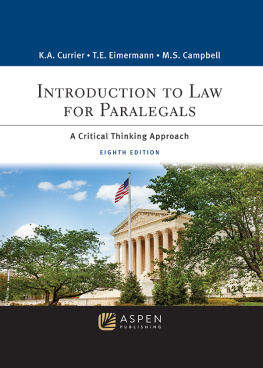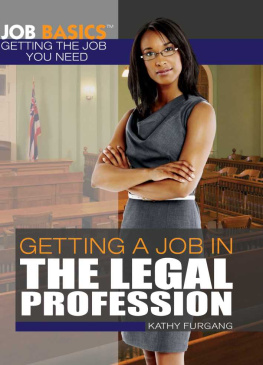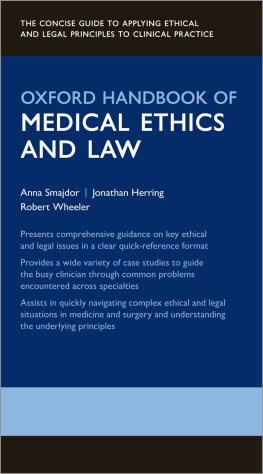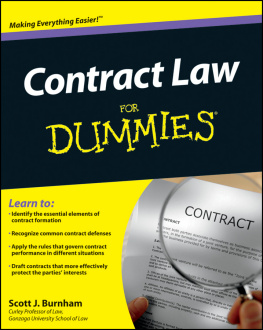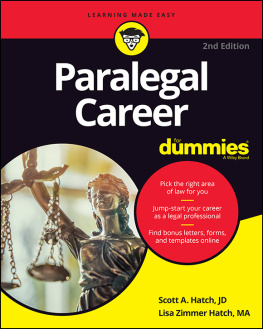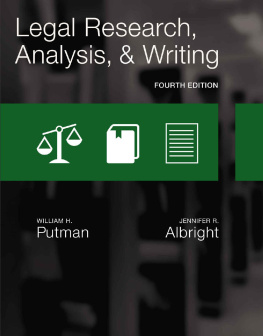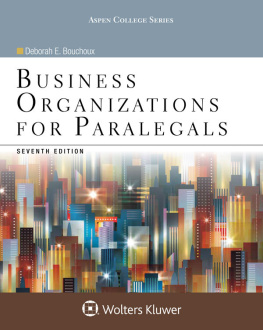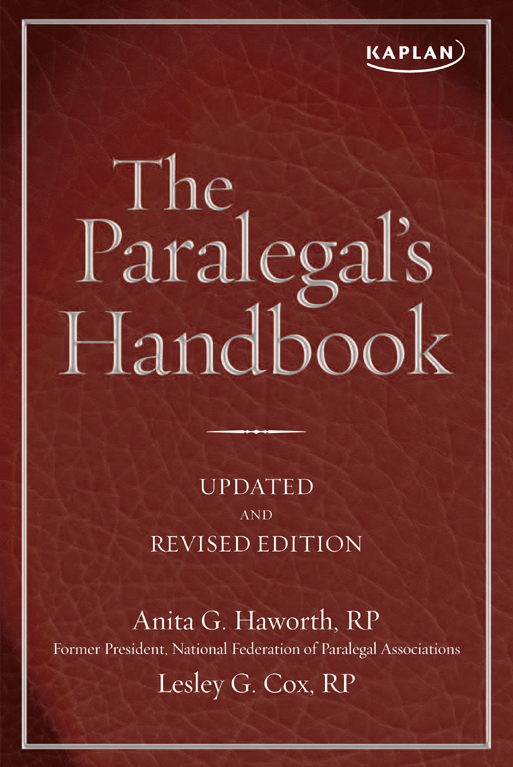Anita G. Haworth, RP
Lesley G. Cox, RP
Table of Contents
Chapter 1
Overview of Paralegal Practice
Chapter 2
Investigation and Fact Gathering
Chapter 3
Document Management
Chapter 4
Discovery
Chapter 5
Trial Preparation, Mediation, and Presentation
Chapter 6
Areas of Practice
Appendix A
E-Discovery for the Paralegal
Appendix B
National Federation of Paralegal Associations, Inc.
Appendix C
Samples and Forms
W HAT IS A PARALEGAL? The National Federation of Paralegal Associations (NFPA) defines a paralegal as a person, qualified through education, training or work experience to perform substantive legal work that requires knowledge of legal concepts and is customarily, but not exclusively, performed by a lawyer. This person may be retained or employed by a lawyer, law office, governmental agency or other entity or may be authorized by administrative, statutory or court authority to perform this work. Substantive shall mean work requiring recognition, evaluation, organization, analysis, and communication of relevant facts and legal concepts.
The American Bar Association (ABA) defines a paralegal/legal assistant as a person, qualified by education, training or work experience who is employed or retained by a lawyer, law office, corporation, governmental agency or other entity and who performs specifically delegated substantive legal work for which a lawyer is responsible.
So what does this really mean? It means that a paralegal often does many things that, but for the paralegal, would be done by the attorney. No matter what area of law, paralegals are often the front line with clients and witnesses; and, in litigation cases, paralegals frequently interact with court personnel, opposing counsel, and experts. Paralegals also spend a great amount of time drafting correspondence and various other documents including, but not limited to, pleadings, motions and briefs, discovery requests and responses, contracts, and exhibits. Consequently, excellent written and verbal communication skills are essential. Paralegals may perform legal research, create presentations, and file documents electronically. It is vitally important that the paralegal be able to work with many types of software programs and, in many instances, also be able to set up or troubleshoot the hardware involved. As the courts and all working environments become more dependent on technology, it is the paralegal who combines traditional paralegal skills with technological knowledge who will be most sought after.
A paralegal must be flexible, organized, and efficient. No matter what the area of law, a paralegal must often juggle multiple projects while keeping track of, and meeting, deadlines associated with each. It is common to be stopped in the middle of a project in order to handle something else that the attorney or client wants done right away. This necessitates that the paralegal be able to multitask and keep track of the status of several projects simultaneously.
As with many other professions, the paralegal profession has evolved from one that was primarily an apprenticeship to one that now requires at least a certain amount of education in order to be considered a valid candidate for the job. It would be very rare in this day and age for an individual to be hired without any education and/or training as a paralegal. Years ago, however, it was common to work ones way into a paralegal position. Most paralegals were formerly legal secretaries who had a great deal of experience and legal savvy and could be counted on to draft accurate discovery responses, pleadings, and the like for the attorney. This person had usually worked for that attorney for several years and was given increased responsibility as the attorney became familiar with his or her skills and knowledge of the law.
Through the years, specific paralegal education programs developed with the intent to teach lay persons the knowledge and skills necessary to obtain a paralegal position. There are now certificate programs, associates degrees, bachelors degrees, and even masters programs in paralegal studies. It is no longer necessary for employers to teach or train someone from the ground up. Employers today want and expect the person they hire as a paralegal to have the education and training (and often the experience) necessary to do the tasks assigned to him or her.
Paralegals work in all areas of the law; they can be employed by law firms, municipalities, and county, state, and federal government offices. They can work for prosecutors, public defenders, and legal aid societies, at financial institutions, for property management companies and insurance companies, and in all types of corporate legal departments. Paralegals can also work for philanthropic societies, nonprofit organizations, or private individuals. Sole practitioners and small, medium, and large law firms all utilize paralegals.
What a paralegal actually does greatly depends on the environment in which the paralegal works. For instance, in some of the smaller law firms, the paralegal will normally do all of his or her own correspondence and typing. In addition, in a smaller law firm, the paralegal is more likely to work on a variety of cases and in multiple areas of the law. In larger law firms, the paralegal is more likely to have a secretary and work in more specialized areas of law or in a particular court system. For instance, a paralegal may specialize in real estate, intellectual property, or federal litigation. Corporate paralegals may work in the litigation section or in corporate finance, mergers and acquisitions, or contracts. Governmental paralegals will also have varied responsibilities depending on the particular section of government for which they work, which could be regulatory, legislative, or other.
One of the most important skills a paralegal can have is the ability to write well. A paralegal must write letters, memoranda, and all types of correspondence. Accurate knowledge of English grammar and an ability to spell are essential. (Spell-checker will catch many errors but not all!) It is vital to remember that the paralegals work product affects the reputation of both the employer and the client, and a poorly written document will reflect poorly upon the attorney and upon the clients case.
It is also important to know how to perform legal research and analysis. Despite the fact that law clerks or associates might do most of the research, a paralegal often needs to be able to locate and/or review an opinion for its applicability to the current case and to know how to properly cite it in briefs and memoranda. Consequently, a paralegal should be able to utilize both electronic and traditional methods of legal research.
Competency and professionalism are two of the most important elements for a paralegal to have. Competency involves knowledge, experience, and the ability to apply that knowledge and experience to a particular task or set of tasks. Education leads to knowledge and is the essential first step to becoming a paralegal. Education provides a foundation upon which to build your knowledge through the application of what you have learned. By applying what you have learned, you gain the skills and experience to become competent. Remember that education does not end upon graduation but continues throughout your lifetime. To remain competent, you have an obligation to continually strive to maintain and increase your knowledge of the law and changes in the law, so that you can apply that knowledge to the work at hand. This increased knowledge may be gained by attending continuing legal education seminars, networking with other legal professionals, and actively participating in a paralegal professional organization.


